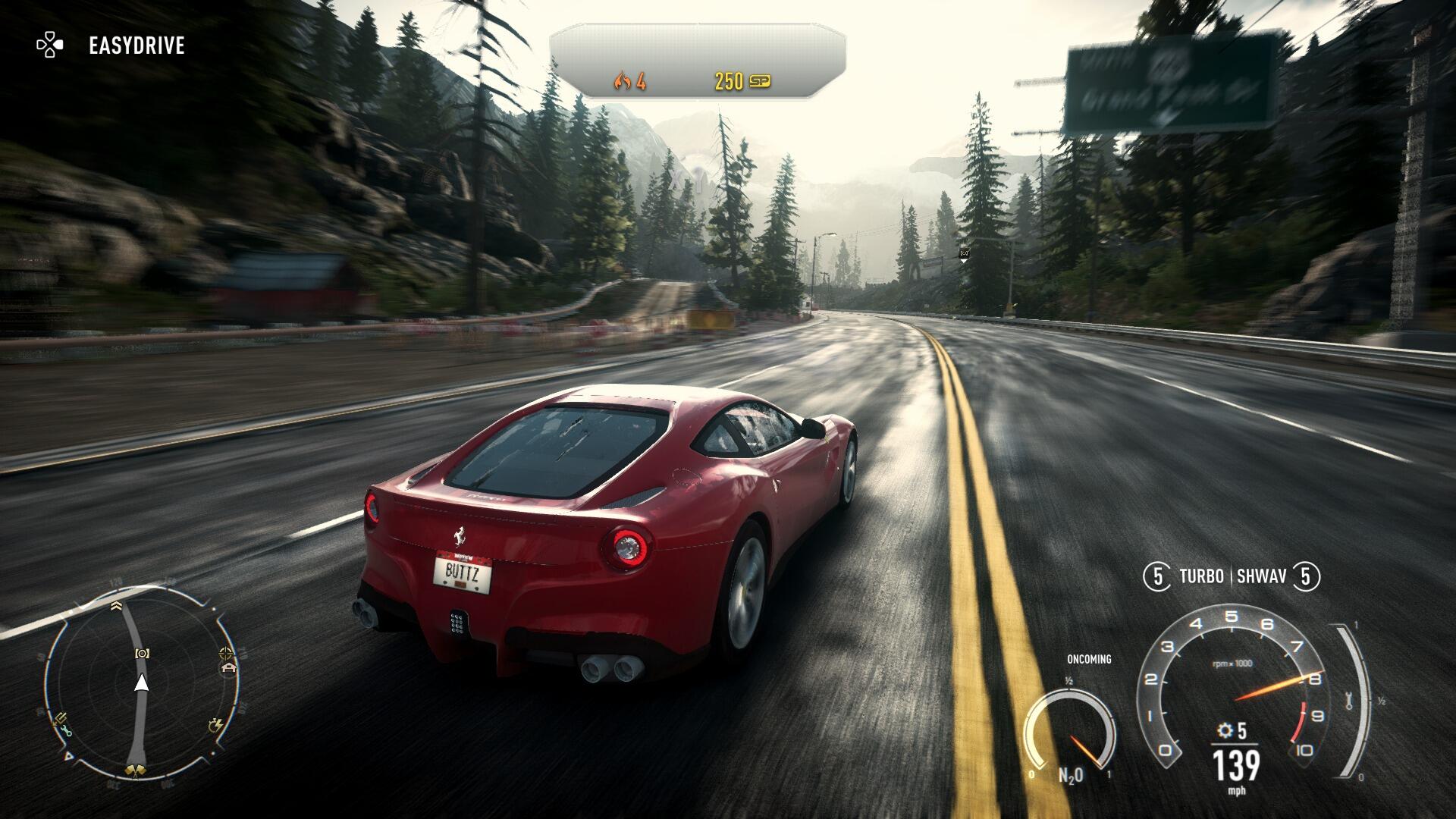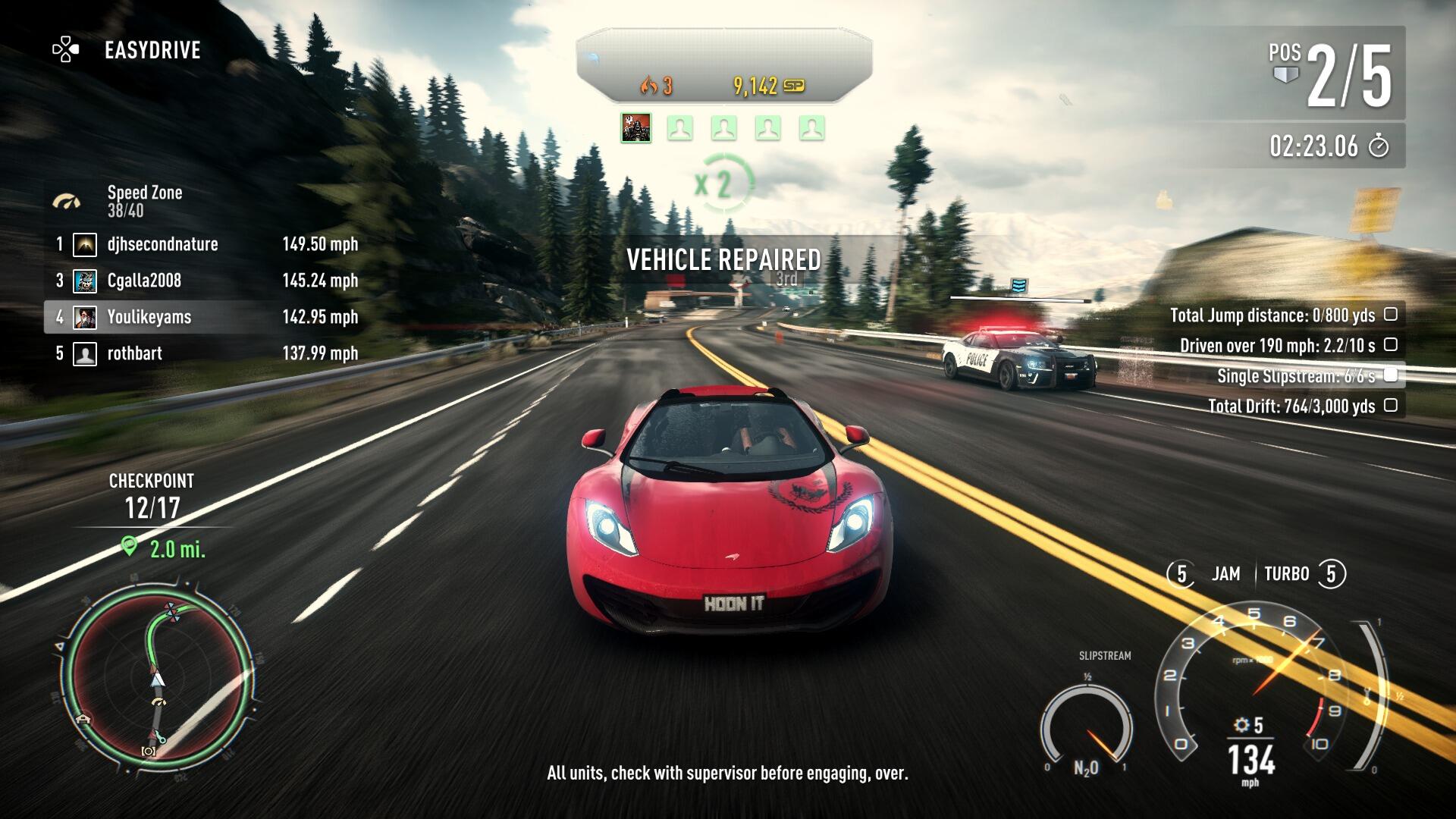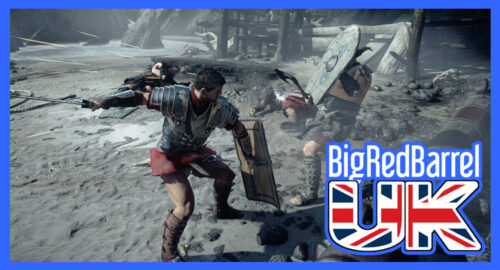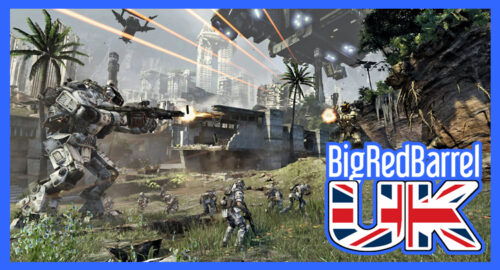“You are my bitter rival, and I need you for survival,” sing Sleigh Bells on the title track of their latest album, Bitter Rivals. Criminally, the song doesn’t appear on the soundtrack of Need For Speed Rivals: criminal because it’s a fantastic summarisation of the game and the series as a whole. Rivals pitched police cars against street racers, as the series’ best entries have, but encouraged you not just to run from the law but to join with it as well.
Playing Rivals is a largely directionless experience, though not one without purpose. Whether playing as a cop or as a street racer, the player is dropped into the world with a very quick understanding of the basics, and then left to explore. Speedlists are the closest thing to a nudge the game gives, a series of increasingly difficult objectives which unlock new cars on both sides of the law. Complete x events, arrest y drivers and drive z miles and all manner of supercar exotica is opened for racers to buy with Speedpoints, currency earned by way of dangerous driving and completion of events. The police, subsidised by incredibly understanding taxpayers, get new Ferraris, Lamborghinis and Bugattis for free. Both sides can buy weapons: racers get turbo boosts while the police get roadblocks.
Outside of Speedlists, satisfaction in Rivals largely came from cruising across Redview County. Spanning cornfields and vineyards, golden canyons, pine forests and snow-capped mountains, Redview’s roads stretch out as a sort of trans-American highway. The colour palette transforms in the blink of an eye, weather shifts from sunlight to snowstorm and day turns to night – you travel, in a sense, more than you travel in Most Wanted‘s city. There’s a real sense of going distance.
From the moment the game is loaded, the roads are populated not only with AI racers and cops but also five other players who may be racers or cops as well. Driving somewhere in the vicinity of a player activates a SpeedPoint multiplier which can make the most expensive supercars suddenly more affordable after a few minutes of company. This has the potential to transform how the game is played at any given moment. The temptation to abandon the pursuit of a lowly AI racer to chase after a fellow player is usually too great to resist; conversely you can find your race invaded by cops with a grander killer instinct than your average AI bobby on the beat.
These encounters create some of the game’s best moments. Being chased down by a police car driven by an actual human being, who has a real desire to take you down, is countless times more thrilling than avoiding cars offline, even though the aggression of the AI is laid on thick and fast. The tension is amplified tenfold when watching your damage meter – racers only keep their Speedpoints if they make it to a hideout unscathed. It’s still the same game, you’re still collecting Speedpoints and completing Speedlists and driving more ludicrous cars at faster speeds – but the cops have names and faces, even if those are xxDoOmSlAyErxx and an avatar of Perry the Platypus from Phineas and Ferb. They still mean business.
When pursuits end they end violently in a shower of twisted metal and shattered glass expected of former members of Criterion Games. Traces of Hot Pursuit, Most Wanted and of course Burnout show in Ghost Games’ handiwork, from exquisite vehicle detail (in both undamaged and post-crash states) to subdued handling that leans from thousand-kilo heft to powerslide-friendly lightness at just the right moments. Criterion have long been the masters of arcade racers – they receive a nod in the game’s title screen for their contributions – and their fingerprints are all over Ghost’s debut.
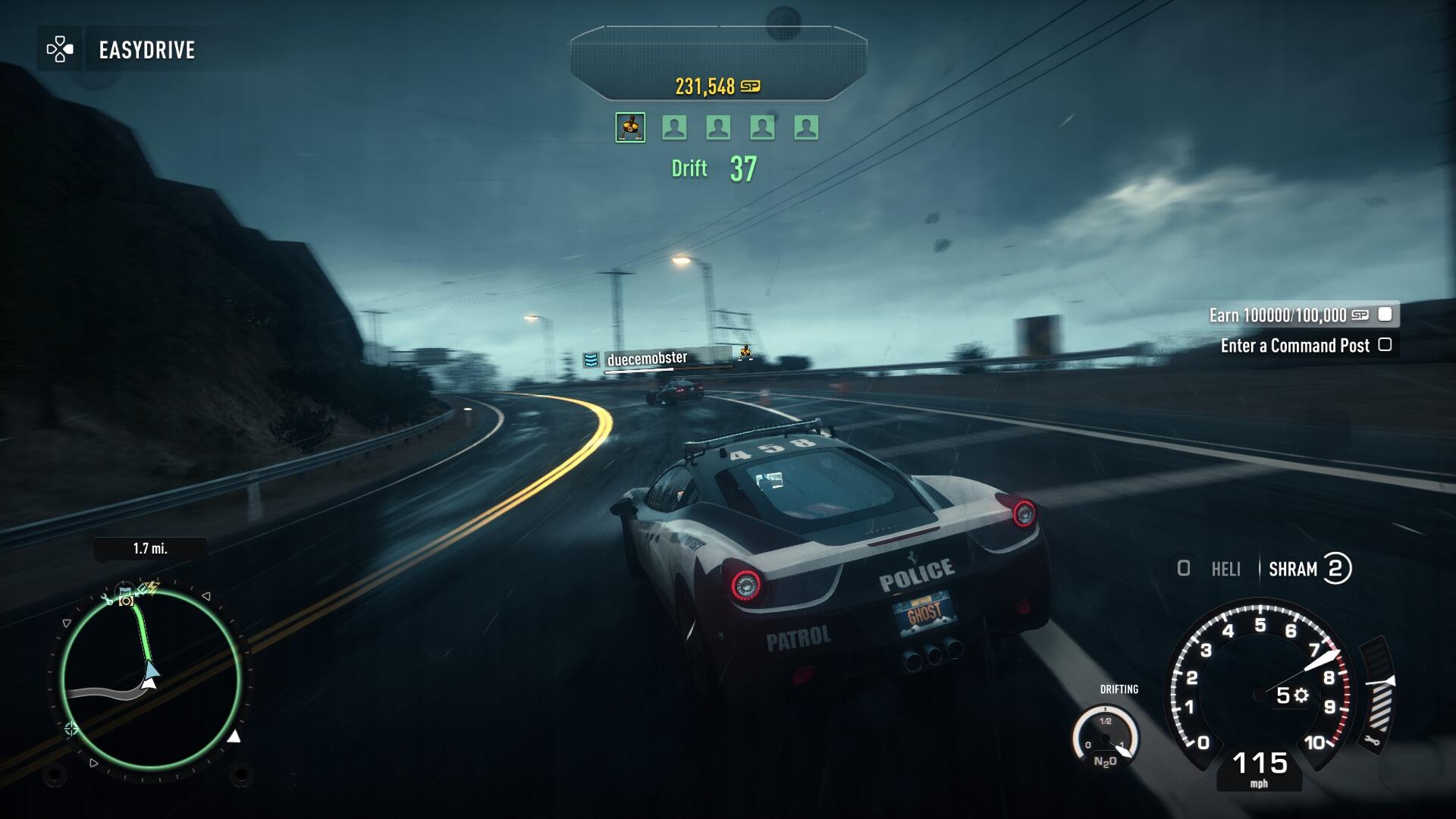
Cops have it easy, keeping their Speedpoints if they wreck the car completely. Racers can earn more quicker by staying on the road for longer
Unfortunately, the game feels rushed in places, as if contracted to hit the seventh-gen launch window no matter what. Cars have a curious habit of appearing from nowhere from time to time and certain areas of the game world have bizarre respawn points, leading to comedic Groundhog Day scenarios. Subtitles are incorrect in places – a small detail, but one that conjures up images of a rushed transcriber scribbling down his first impressions of dialogue rather than ensuring accuracy.
The always-on nature of the game’s multiplayer also interferes with the flow of gameplay from time to time. Host migration is painfully slow and temporarily yanks all players out of the world, placing them somewhere approximate to where they were when the original host quit; disconnection errors kick you back to the menu hub, stripping you of any SpeedPoints earned during the session as well. Up until these problems happen the game experience is seamless. They feel out of place in a game that is otherwise well crafted, especially when compared to the buggy version we encountered at Eurogamer Expo.
Since Rivals‘ release Ghost Games’ UK arm – the other based in Sweden – has been subject to major layoffs. Contractors were released and full-time staff offered redundancy packages or a place at Visceral Games. Criterion’s founding members have also recently departed to start fresh in a new company. The next Need For Speed title is reportedly on hold as well.
Whether this is tied to Rivals‘ success or not is unknown, as most corporate business tends to be, but the game seems to be a success critically and commercially. The game continues to chart in the UK at the time of writing and Metacritic scores – EA’s favourite metric – sit at around 80%. It is a good game, by all accounts.
It might have lacked the focus of Most Wanted‘s city-wrecking multiplayer activities but what this offered was something many racing games don’t: true freedom. Rather than dress an open-world up with structure and stagnated progression Ghost handed players the keys to a fast car – blue lights and siren optional – and invited them to hit the road. It’s one of the best Need For Speed games to date and still gets loaded up from time to time for a bash about Redview County, blasting the blues-and-twos and bringing justice to any and all racers who dare to cross my path.
